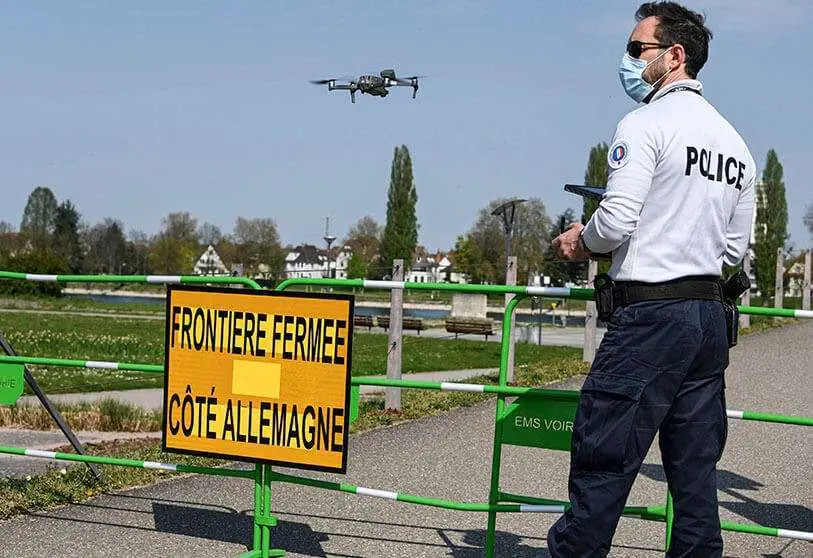The dilemma of freedom and democracy

A few days ago I had the wonderful opportunity to interview Antonio López Vega, director of the Ortega y Gasset University Research Institute, about what this post-Coronavirus society will be like; fortunately it was an interesting talk of which I want to share some insights with you.
For the Spanish writer, Antonio López Vega, it is not necessary to transmit fear, because every crisis is "also an opportunity", the word of Greek origin that "means decisive moment" in one of its meanings. Although he acknowledges that many things are at stake, not only the values inherited from the French Revolution and modern democracies, but also the role that each person will assume in their own individuality in the face of freedom and democracy.
"With the health emergency caused by the coronavirus, it seems to me that a gap is closing - a gap - that, let's say, had started in a period of time in 2001 with the September 11 attacks; let's remember that before the terrorist events we were travelling around the world with certain flexibility and after them there was a preliminary discussion about the surrender of our freedom and of that individual dignity that had been treasured for a long time in order to guarantee that no more terrorist events would happen", he reflects.
Once again, we observe that in the wake of the pandemic, individual freedom is once again being rethought for the sake of the common good and the collective, and for López Vega this brings up the discussion of this relationship of freedom and its delimitation in order to maintain security, in this case, health. "Society understands that it is giving up its freedoms when it comes to leaving the house or relating to others; the first thing that comes up here is how the human being is or is not willing to give up one of the essential values for another that has also been gaining ground as a supreme value such as health," he says.
Recently, the French philosopher Bernard-Henri Lévy put the new values on the line with those exalted by the French Republic and perhaps "a new approach is being taken" to change this hierarchy.
I asked the academic director the million dollar question, will the post-Coronavirus society be less free and less democratic? In his opinion, as a historian, what the past teaches in times as complex as those we are living in today is that, in the end, conservative movements and some more extreme ones will come out stronger.
"These are reactionary positions that are strengthened because society's fear in general tends to paralyse a series of policies that, at other times, we delegate in the interests of welfare and social democratic parties... But in a contraction these are not moments for expansive policies and of course he is absolutely right from the point of view of economic logic, so we find ourselves in a dilemma: On the one hand, the natural reaction of the electoral bodies is to vote conservatively, while the reaction of individuals can and usually is to entrench issues that have been forged in history for decades," he reflects.
In the voice of the academic director, in social and political terms, the current crossroads is fascinating "because we are going to witness a time when the world will not be as it had been before the coronavirus"; and the reactionary, conservative, nationalist and authoritarian temptation prevails that "we were already seeing in politics" such as in the United States or Brexit himself or in various countries in Europe.
The coronavirus has also exposed several ways of organising itself to manage public health emergencies better than others in some countries. There is an operation from certain factual powers to show the subliminal idea that in countries with some absences of civil liberties the health crisis has been better managed; but each one responds to its own diverse cultural traditions.
Likewise, each country has imposed its own health code to try to control the spread of the virus with a certain protocol improvised by the World Health Organization (WHO) and also establishes GPS monitoring of its population and tracking on social networks under the justification of halting the transmission of the virus; more and more people in Europe are beginning to complain about feeling observed and persecuted.
The Spanish philosopher José Ortega y Gasset said that each man has to decide at each moment what he will do in the next and that there is no self separated from the real world. Will our immediate self be one that is tied to a monitored and spied upon Big Brother to know if people are healthy or can infect another?
For Lopez Vega, this quote from the Orteguian reason for life is a summit in Spanish prose and at the top of metaphors: "I like very much a quote that is the one in Meditations from Don Quixote by Ortega y Gasset in which he says 'I am and my circumstance and if I do not save it, I do not save myself'; for me it is where the key to what he poses to me lies... each of us must have our tools to live our lives as a radical reality, as a full entity to face the challenges that circumstances pose to us".
What will society be like at the end of this health crisis that has opened up a channel for us in every way? And that puts us human beings before the dilemma of saving life or saving the economy?

